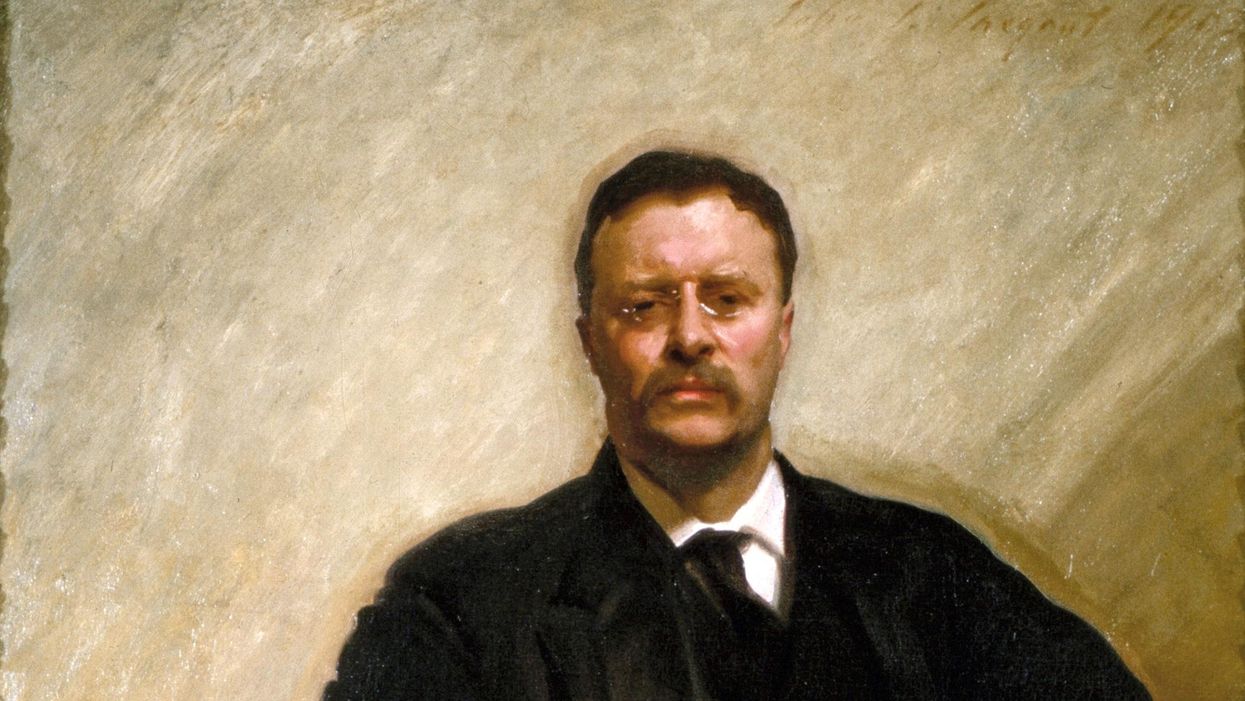Anderson edited "Leveraging: A Political, Economic and Societal Framework" (Springer, 2014), has taught at five universities and ran for the Democratic nomination for a Maryland congressional seat in 2016.
The conventional wisdom amongst American historians, politicians, pundits and citizens is that the United States took a sharp turn toward the left during the Progressive, New Deal and Great Society eras. This perspective, however, is only instructive when you look at our political and economic history from the standpoint of American history. From the standpoint of world history, the United States took a sharp turn toward the center during these three historic time periods.
The explanation for this fundamental difference is plain. In the United States, we have existed within the confines of what the late Harvard political scientist Louis Hartz called "the liberal tradition.” Unlike the United Kingdom and the countries on the European continent, the United States had neither a feudal past and a long heritage of monarchs nor a socialist tradition.
Our political tradition, Hartz argued in 1955, revolved around individual rights based on the political philosophy of John Locke, whose views we would today call libertarian. Rights theory in the 20th century also included the "liberal" mixed economy or "liberal" welfare state. In any case, Hartz argued that we never developed a serious socialist tradition because we had no tradition of centrally controlled government associated with right-wing monarchies.
Therefore, by the early 20th century the liberal capitalist order did, from our perspective, take a sharp turn to the left when two Republicans – President Theodore Roosevelt and Wisconsin Gov./Sen. Robert LaFollette – and Democratic President Woodrow Wilson led efforts to rein in big business.
They busted up Standard Oil and the trusts in general and created federal agencies to regulate the flow of money (Federal Reserve Board), the production and distribution of food (Food and Drug Administration), and the transportation of commerce across state lines (Federal Trade Commission). They created a federal income tax and gave women the right to vote.
The New Deal and the Great Society kept traveling left, with the National Labor Relations Act, the Securities and Exchange Commission, the Social Security Administration, the National Industrialization Act, the Fair Labor Standards Act, the Civil Rights Act, the Voting Rights Act, the Fair Housing Act, Medicare, Medicaid and affirmative action.
From the standpoint of world history, however, the United States since the early 1900s has been moving toward the center, because socialism became the rival force to capitalism from the mid-19th century through the work of writers in France, the U.K. and especially Germany, namely Karl Marx. By 1917 the Russian Revolution brought forth the first major socialist, indeed communist, totalitarian state.
Franklin Roosevelt, Lyndon Johnson, even Barack Obama and Joe Biden are regarded as socialists by huge numbers of Republican voters and many Republican politicians. From the perspective of world history, none of these democratic leaders comes close to being a socialist leader. The social democracies of the Nordic countries today, and indeed the socialist-led coalitions on and off in Germany, France and the United Kingdom since World War II, represent the real leftist challenge to the advanced industrial age, the information age and capitalism.
The truth is, the United States and the Western democracies, which are all multiparty parliamentary democracies with a strong socialist presence, have been striving since the 1930s to find the center between laissez-faire capitalism and democratic socialism. It is true that Germany and Italy during World War II became fascist regimes, but those are exceptions.
In the U.S. and the U.K. many Clinton Democrats and members of the Tony Blair Labor Party have been seeking to find the "Third Way," which is really the "New Center," since the 1990s. Our left-right spectrum, which has never had a strong socialist presence (though Sen. Bernie Sanders has given socialism a real boost) occupies the middle of the ideological spectrum – we're in between the two 40-yard lines on a U.S. football field.
If we are to maintain our democracy, in the next 10 years we must find ways to educate ourselves about the reality of our quest for the next stage of the center – on the left side of the center or the right side of the center – whether through nonprofit organizations, political leaders, schools or some combination. Otherwise, we will continue to talk past each other, misidentify each other, and confuse each other in our very narrow perspective on ourselves and the rest of the world.




















Trump & Hegseth gave Mark Kelly a huge 2028 gift